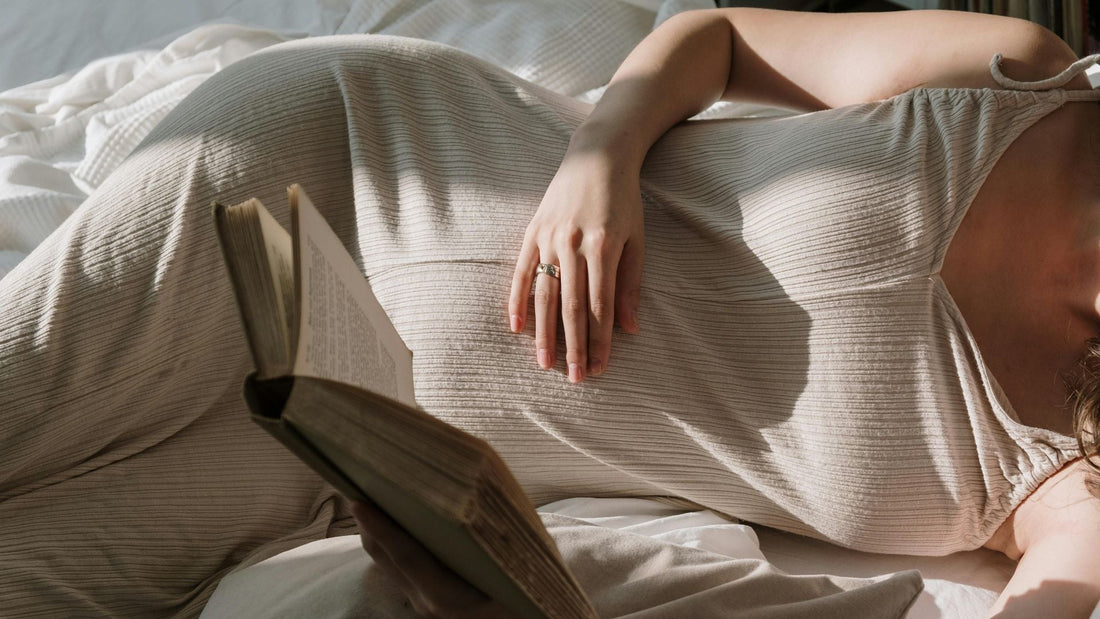Why Is My Stomach Still Bloated After My Period?

Ladies, we’ve all been here before (well, every month or so)—between the cravings, the uncontrollable cry sessions, there are nonstop aches and pains. With an already bleak introduction into womanhood, why must we bloat on top of the number of other ailments and inconveniences? We feel gross, sluggish, and flat-out uncomfortable with our bodies when bloating occurs. Of course, we are talking about menstruation and how frustrating the physical effects can be; especially bloating.
CAUSES OF BLOATING DURING MENSTRUATION:
According to Dr. Ahmed Helmy, a licensed plastic surgeon, several changes occur in the female body during menstruation. At the stem of these changes is the fluctuation of the female hormones, estrogen, and progesterone. “As levels of progesterone decline, the lining of the uterus starts to shed,” said Helmy. “The fluctuation in hormones not only affects the uterus but can have an impact on digestive function, too.”
According to Medical News Today, research also suggests that fluctuation in hormone levels can cause the female body to retain more water and salt. As a result, this can cause the body’s cells to swell, which causes additional bloating. “Food in the intestines causes gas and excess gas can make you feel bloated,” said Kim Langdon, a doctor of gynecology. “The gastrointestinal motility decreases in the period before menses, probably due to elevated progesterone,” said Langdon.

REMEDIES FOR BLOATING DURING MENSTRUATION:
According to Dr. Ahmed Helmy, your best remedies include steering clear of high sodium foods and avoiding alcohol and caffeine as they can irritate the lining of the stomach which can lead to more severe bloating. Make sure to stay active, exercise regularly, and maintain good hydration by drinking plenty of water. Helmy recommends opting for whole-grain foods and making sure you get enough lean proteins into your body.
Research also suggests that eating potassium-rich foods such as bananas, avocados, and dark leafy greens can significantly reduce the sodium levels in your body and promote an increase in urine production (flushing the system). “SRI’s (serotonin reuptake inhibitors) and transdermal hormonal contraceptives or oral ones with minimal pill-free days are a couple of choices,” said Langdon. “Avoid ‘gas-producing foods or take supplements like BEANO or Gas Ex.”
Another way to treat menstrual bloating is by adding probiotics to your diet, such as Provitalize probiotic supplements. There’s evidence that taking probiotics could support your gut health by increasing the amount of “good” bugs in your gut and helping them outnumber the “bad” bugs. Helmy also noted that some women even try diuretics: such as pineapples, asparagus, and ginger. If you choose this route, Helmy suggests drinking lots of water to combat the dehydrating effects caused by frequent urination.
LENGTH OF TIME DURING MENSTRUAL BLOATING:
Typically, most females begin bloating about one to two weeks before menstruation. “Once the menstruation cycle passes, some continue to feel bloated - but this usually only lasts for a few days as hormones start to return to normal levels,” said Helmy. According to Langdon, bloating should lessen with the onset of menses or before menses end, (when progesterone and estrogen are lowest) with complete relief usually occurring once bleeding has stopped. She also advises that cramps are often confused with or can aggravate bloating.
According to medical research and professional speculation, dietary influence has a huge impact on menstruation bloating. Try to stick to a healthy diet, especially one that is composed of reduced sodium intake as this can help deter water and salt retention. If you choose to try diuretics, make certain that you stay hydrated. No matter what, it is crucial to remember that bloating is completely normal and entirely natural.
However, if your bloating lasts longer than a few days after your cycle has ended, it would be best to consult with your doctor or gynecologist. Some prolonged bloating can indicate other health conditions that should be addressed by a medical professional.
by Haleigh Couture









